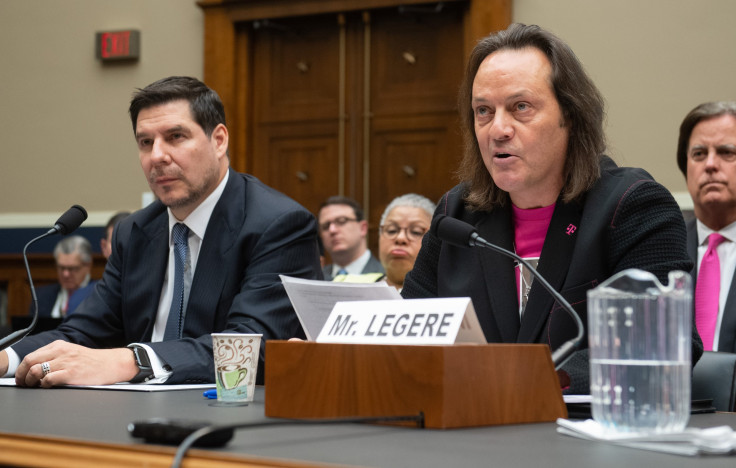T-Mobile, Sprint Merger A Big 'Win' For Rural America, DOJ Official Says

The T-Mobile Sprint merger is good for rural America said the latest news on the T-Mobile Sprint merger that quoted a top official of the Department of Justice.
The $26 billion merger deal between the two wireless companies had generated a lot of heat with demands for stopping the deal over concerns of reduced competition and fears of higher prices to consumers.
Makan Delrahim, DOJ’s assistant attorney general for the antitrust division told a panel attached to the Senate’s Judiciary Committee on Tuesday that the agency examined the deal at length for 13 months before it gave the nod.
The DOJ green-lighted the deal in July.
“You’re now going to have Sprint, T-Mobile combined, with the remedies we put in, providing real competition to AT&T and Verizon for the first time to consumers,” Delrahim said.
The T-Mobile Sprint merger news highlighted the DOJ official’s categorical assertion that the deal will be good for consumers particularly in rural areas. They will win “at the end of this if the merger goes forward.”
The Federal Communications Commission’s (FCC) chairman Ajith Pai has also circulated a draft in August recommending approval of the deal.
Sen. Patrick Leahy, a Vermont Democrat, quizzed the DOJ official to know whether the Trump administration had exerted any influence on the Justice Department’s decision.
The lawmaker cited the costly stay of T-Mobile executives at the Trump Hotel while seeking approval for the merger.
Delrahim replied that DOJ’s decisions are not weighed by the “hotel stays of merging parties.”
DOJ sets safeguards for the merger deal
To accord the approval, the Justice Department had set its terms. It brought Dish Networks as a potential fourth carrier to address the agency's concerns on unfair competition.
The DOJ wanted that the deal should not render the U.S. wireless market monopolistic. Without a new fourth player, the market would have become the sole domain of just AT&T, Verizon, and T-Mobile.
The $5 billion Dish deal bestows it additional wireless spectrum from Sprint and T-Mobile for building its wireless network.
Sprint's prepaid services, Boost Mobile, Virgin Mobile and Sprint prepaid would also be sold to Dish.
A seven-year wholesale agreement to sell T-Mobile wireless service under the Dish brand is yet another bonanza.
The merger plank of T-Mobile and Sprint claims they will offer many benefits to rural America in terms of jobs as the investment on 5G expands.
The two companies also promise setting up new customer service centers on the lines of T-Mobile customer service as soon as the deal is closed.
They also promise freezing prices for at least three years and roll out of a nationwide 5G network. There will be a specific rural broadband program offered as a fixed wireless broadband solution.
States not convinced
However, almost 16 states have legally challenged the deal. Illinois was the latest to join the crowd of 15 other state attorneys general and the District of Columbia.
Their lawsuits want the merger deal of the wireless carriers stopped.
The trial is expected to begin in December. The T-Mobile stock was up 0.8 percent in the last trading session on Tuesday.
© Copyright IBTimes 2024. All rights reserved.



















